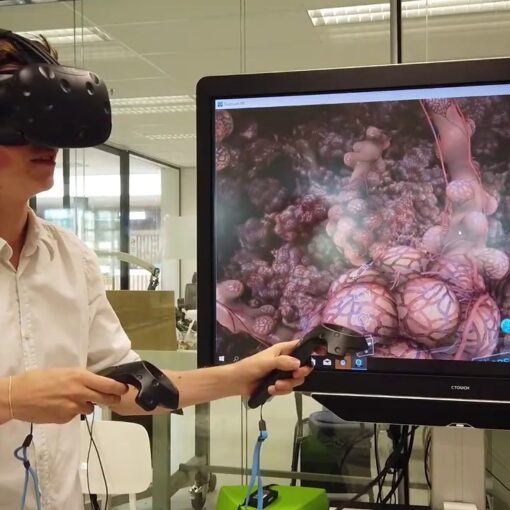Since 2019, the infectious disease caused by severe acute respiratory syndrome coronavirus SARS-CoV-2 spread rapidly around the world. The COVID-19 pandemic is considered the largest community health event in more than a century. As primary health care services are the first line of defense in healthcare, nurses have to face greater work intensity and psychological pressure than usual. (Arnetz et al 2020.)
The array of health care -related issues caused by the COVID-19 pandemic has forced nurses to work in challenging environments that threaten their health. Staffing and equipment shortages are specific challenges facing healthcare systems during the pandemic, with nurses having to increase their workload. On the other hand, the lack of personal protective equipment puts most caregivers at high risk of infection. With the development of the epidemic, more and more nurses need to be isolated due to infection. At the same time, unprotected caregivers can become a dangerous source of infection for family members. (Burki 2021; Arnetz et al 2020.) This all had a major effect on the general well-being and resilience of all health care staff but especially nurses.

Nursing code of ethics is a formal statement of professional values and beliefs, and how to enable nurses to make ethical decisions is also challenged at this time. (Haddad & Geiger 2018.) If nurses fail to perform their duties due to fear of being infected, they will suffer moral condemnation and have more negative emotions. Many times, nurses will be demoralized by sudden and intense pressure, rather than fighting like a hero in the hospital field. (Arnetz et al 2020.)
Nursing shortages are a long-standing problem. Nursing staff shortages are directly related to the quality and safety of patient care. To address this long-standing problem, health system managers must confront the root causes of the nursing crisis, ameliorate the reality of nurse turnover, and build confidence and cohesion among the nursing workforce. (Veenema et al 2022.) After the pandemic many nurses have left the field which in turn has made the lack of staff situation even worse.
The staff needs to be prioritized
According to Liu (2023), the well-being of health care staff needs to be prioritized. Additionally, the pandemic has made both the employers as well as the government to analyze and rethink labor laws and work arrangements. Fair workload and time distribution also reduces professional nurse dissatisfaction and reduces the risk of nurse burnout. (Liu 2023; Ferreira et al. 2022; Gulsah et al. 2022.)
Employers or nurse managers need to provide more support to nurses to enhance nurses’ resilience and professional well-being. Nurses can also improve their mental state through resilience training, reduce depression, cultivate endurance, and ultimately achieve the purpose of improving their own capabilities.
Nurses can most intuitively understand the status of the infected population and respond and record the status and needs of patients most truthfully. Leaders who manage nurses in a hospital should empathize with the emotional burden that nurses face when dealing with suffering or dying patients. (Nasrin et al. 2020; Liu 2023; Sperling 2020; White et al. 2021.) In addition, nurses need compensation and acknowledgement on the work they are doing since they are a vital part of our national emergency supply during future emergencies and a major support pilar of our well-being services.
Authors
Yunxi Liu is a nursing student graduating from LAB University of Applied Sciences.
Sini Hämäläinen works as Senior Lecturer at LAB University of Applied Sciences.
References
Arnetz, J., Goetz, C., Sudan, S.; Arble, E.; Janisse, J. & Arnetz, B. 2020. Personal Protective Equipment and Mental Health Symptoms Among Nurses During the COVID-19 Pandemic. Cited 9 Apr 2023. Available at https://journals.lww.com/joem/Fulltext/2020/11000/Personal_Protective_Equipment_and_Mental_Health.2.aspx
ArtTower productions. 2022. Werner, B. Woman Female Nurse Health Care Covid-19. Pixabay. Cited 2 May 2023. Available at https://pixabay.com/illustrations/woman-female-nurse-health-care-7033170/
Burki, T. 2020. Global shortage of personal protective equipment. Cited 9 Apr 2023. Available at https://www.ncbi.nlm.nih.gov/pmc/articles/PMC7314445/
Ferreira, I., Santos, T., Santos, H. & Mascarenhas, N. 2022. Repercussions of the labor reform on nursing work in the context of the covid-19 pandemic. Cited 9 Apr 2023. Available at https://pubmed.ncbi.nlm.nih.gov/36043604/
Gulsah, H., Nursan, C.& Ozge, K. 2022. Impact of COVID-19 pandemic on nurses’ burn-out and related factors: A rapid systematic review. Cited 9 April 2023. Available at https://www.sciencedirect.com/science/article/pii/S0883941722001248
Haddad, L. & Geiger, R. 2018. Nursing Ethical Considerations. Cited 9 Apr 2023. Available at https://europepmc.org/article/nbk/nbk526054
Liu, Y. 2023. Necessities and Strategies for Improving Nurses’ Emotional Well-being During COVID -19. Bachelor’s thesis. LAB University of Applied Sciences. Cited 19 Apr 2023. Available at https://urn.fi/URN:NBN:fi:amk-202304235961
Nasrin, R., Marjan, M. & Maryam, S. 2020. Nurses’ perception of ethical challenges in caring for patients with COVID-19: a qualitative analysis. Cited 9 Apr 2023. Available at https://www.ncbi.nlm.nih.gov/pmc/articles/PMC8141204/
Sperling, D. 2020. Ethical dilemmas, perceived risk, and motivation among nurses during the COVID-19 pandemic. Cited 9 Apr 2023. Available at https://journals.sagepub.com/doi/full/10.1177/0969733020956376
Veenema, T., Meyer, D., Rushton, C., Bruns, R., Watson, M., Firestone, S. & Wiseman, R. 2022. The COVID-19 Nursing Workforce Crisis: Implications for National Health Security. Cited 9 Apr 2023. Available at: https://www.liebertpub.com/doi/full/10.1089/hs.2022.0022
White, E., Wetle, T. & Rosa, A. 2021. Journal of the American Medical Directors Association. Cited 9 Apr 2023. Available at https://www.sciencedirect.com/science/article/pii/S1525861020309877

![[Alt text: two persons standing in front of huge posters.]](https://blogit.lab.fi/labfocus/wp-content/uploads/sites/8/2024/05/463_2024._LAB-leads-three-Interreg-Europe-projects-510x510.jpg)


